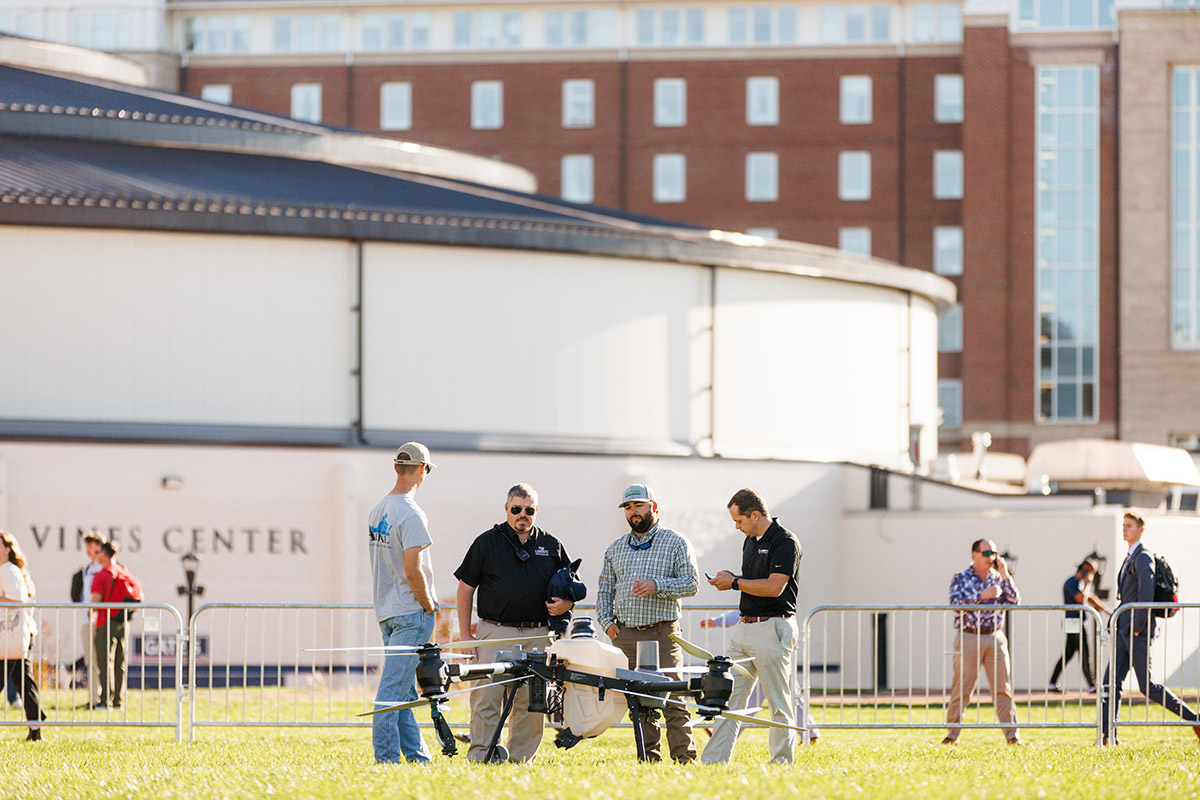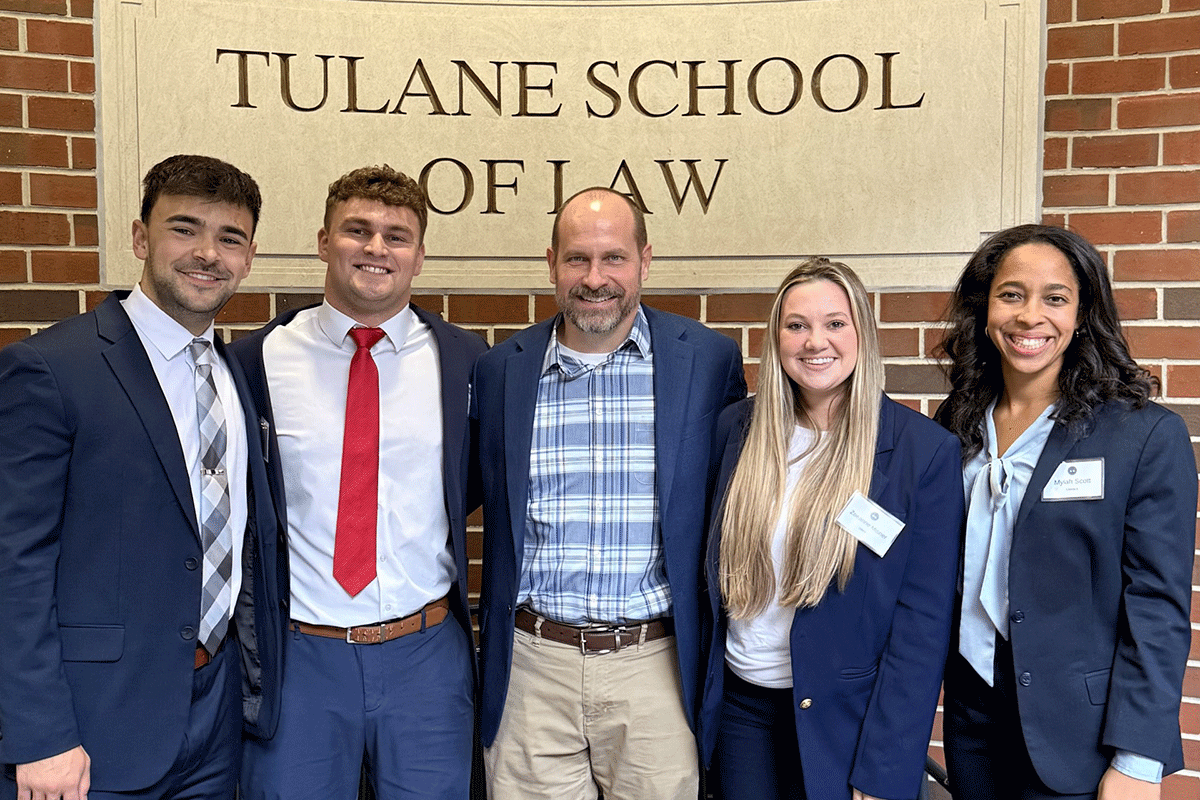Drone Fest introduces students to UAS operations on campus
October 27, 2025 : By Ted Allen - Office of Communications & Public Engagement

Liberty University’s Academic Lawn was turned into a launch and landing pad on Wednesday afternoon for the School of Aeronautics’ first Drone Fest. The event was designed to demonstrate and allow students to test fly a variety of Unmanned Aircraft Systems (UAS).
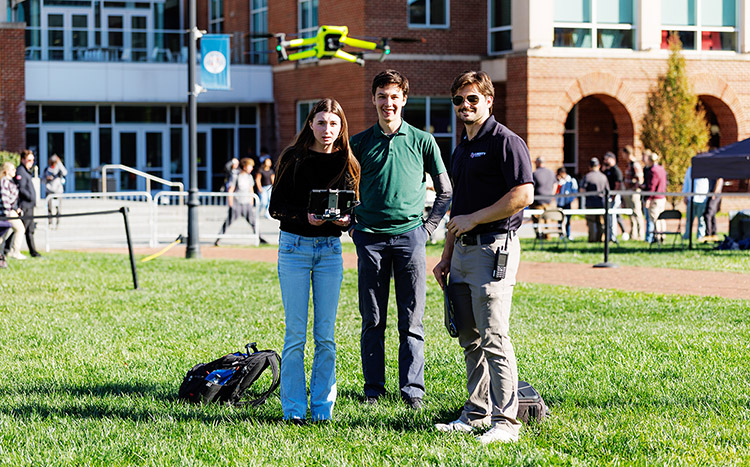
“Anyone who has never flown before can come and learn how to fly,” Kevin Martin, the school’s director of technology and innovations, said as a stream of students entered the field to try their hand at operating drones.
UAS devices on display ranged from smaller DJI Mavics and Avatas to a tethered Zenith AeroTech, a medium-sized Textron Systems drone used on ISR (Intelligence, surveillance, reconnaissance) U.S. Air Force missions overseas, and an AGRAS T40 system designed to spray pesticides on agricultural fields.
“This is an excellent opportunity for students to come and learn what the School of Aeronautics offers and what the industry looks like and how they can get plugged into that through the curriculum we offer here,” said Associate Director of UAS Operations Brayden Johnson, noting there are currently around 50 students enrolled in the Unmanned Aircraft Operations degree program and another 100 or more pursuing a minor.
“Students majoring in cinematography will come and do the minor in UAS so they can learn how to take photos and video with the aircraft,” Martin explained. “Some engineering students will come do a minor with us so they can take their engineering degree and utilize the drone for all sorts of different things.”
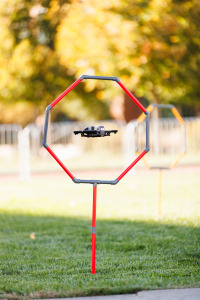
A low-level obstacle course was set up at the Drone Fest for novice to certified UAS operators to fly through hoops. The maximum altitude drones are permitted to fly around the Academic Lawn is 200 feet.
The Drone Fest also included demonstrations from aeronautics students who support Liberty’s Emergency Management & Community Engagement department.
“Our partnership with Emergency Management is fantastic,” Johnson said. “Those guys are excellent at what they do, and we are blessed to be able to support them through large events (including Convocation and Commencement as well as Flames Football games) with small unmanned aerial systems.”
“For any large planned and unplanned event that happens on this campus, we will be flying,” Martin added, noting the drone operators are predominantly students. “That’s the coolest part. Every one of our UAS operations, is done by students.”
The School of Aeronautics’ UAS program has taken off in recent years, and Johnson only expects that trend to continue, with uses for drones ranging from ISR to photography and videography as well as agriculture and transport.
“We are rapidly expanding,” he said, noting UAS flight training takes place all across campus.
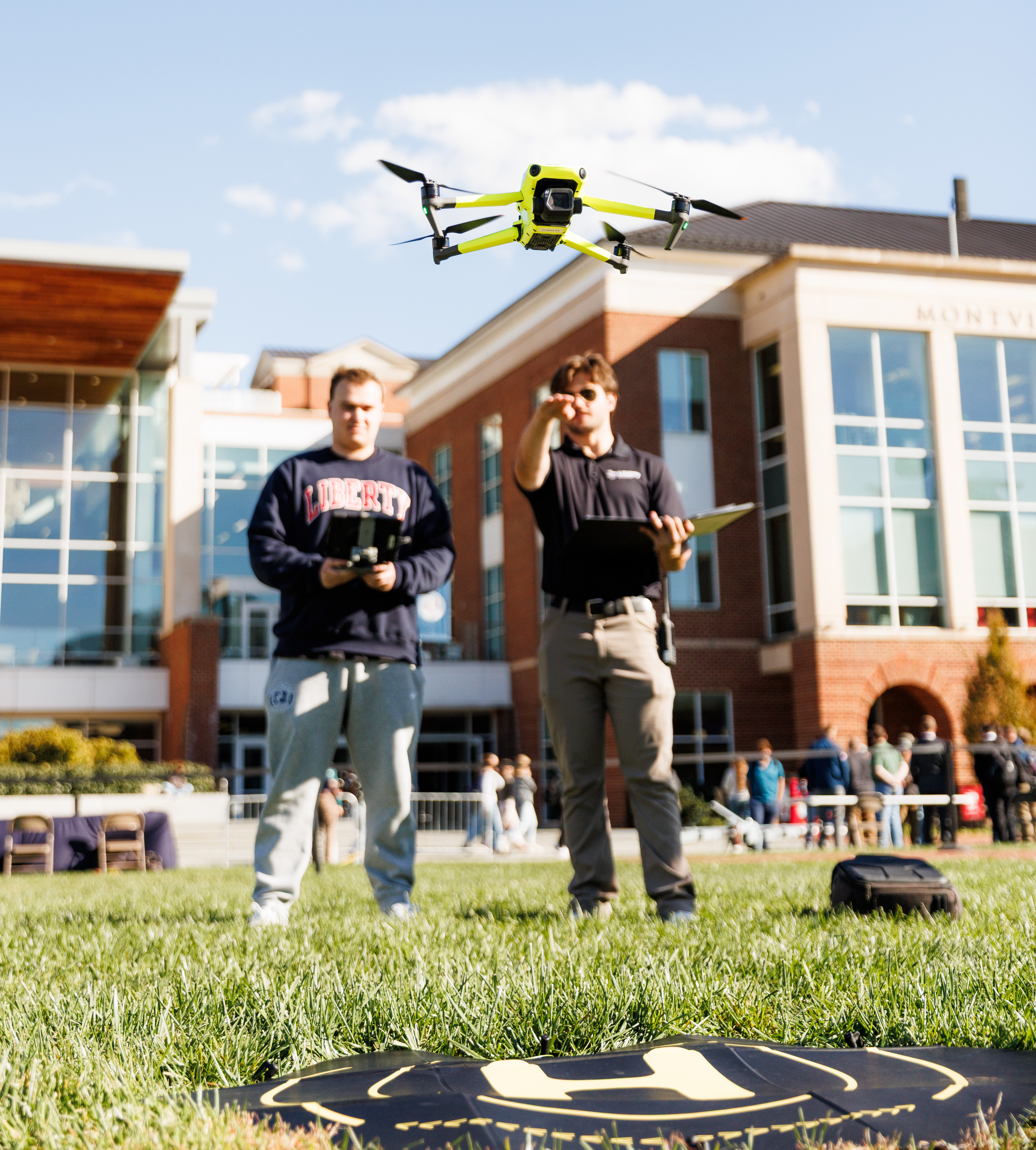
Martin said Liberty’s UAS program uniquely qualifies its graduates for real-world experiences in the field.
“We equip, mentor, and send aviators into the industry,” he said. “For the drone side, we’re going to equip you in the classroom, teach you how to fly … and you’re going to go into real-world operations. We’re going to mentor you during that time at Liberty University, so that when you leave, when we send you out, you already have all of these hours of experience nobody else has, and that’s in ISR, emergency management, search and rescue, and all of those different types of things that we’re providing for the university.”
Five current Liberty UAS students were recently hired by Zipline, a California-based drone delivery company providing residential delivery of food and other products throughout the Pacific Northwest and parts of Africa as well as medical supply transport to hospitals in the Charlotte, N.C. area, among other places.
Students interested in operating UAS on Liberty’s campus must abide by the university’s Drone Policy. The School of Aeronautics UAS Operations team also handles requests for professional drone services.
Liberty University offers a B.S. in Unmanned Aircraft Operations degree, designed for students seeking a career in drone aviation, offering training that can help prepare for licensure and employment across military, commercial, and corporate sectors; as well as a one-semester Medium Unmanned Aerial Systems Certificate.
